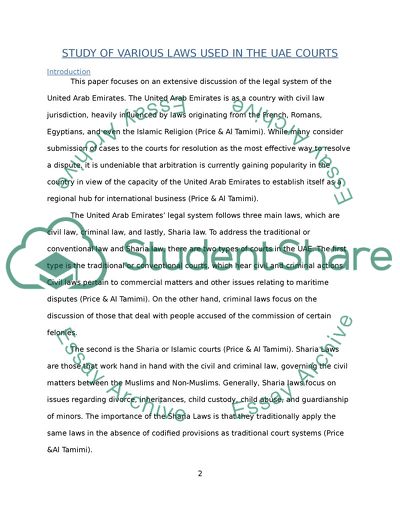Cite this document
(Study of Various Laws used in the UAE Courts Coursework, n.d.)
Study of Various Laws used in the UAE Courts Coursework. https://studentshare.org/law/1791973-comprehensive-project-2
Study of Various Laws used in the UAE Courts Coursework. https://studentshare.org/law/1791973-comprehensive-project-2
(Study of Various Laws Used in the UAE Courts Coursework)
Study of Various Laws Used in the UAE Courts Coursework. https://studentshare.org/law/1791973-comprehensive-project-2.
Study of Various Laws Used in the UAE Courts Coursework. https://studentshare.org/law/1791973-comprehensive-project-2.
“Study of Various Laws Used in the UAE Courts Coursework”. https://studentshare.org/law/1791973-comprehensive-project-2.


